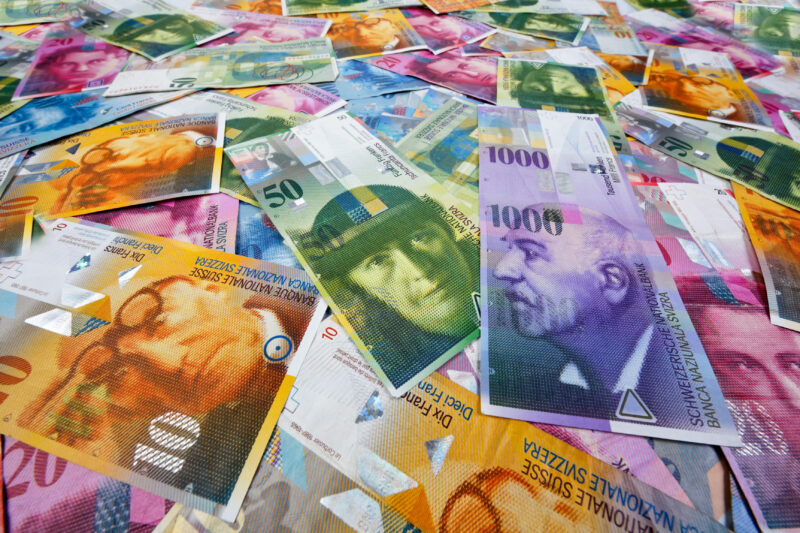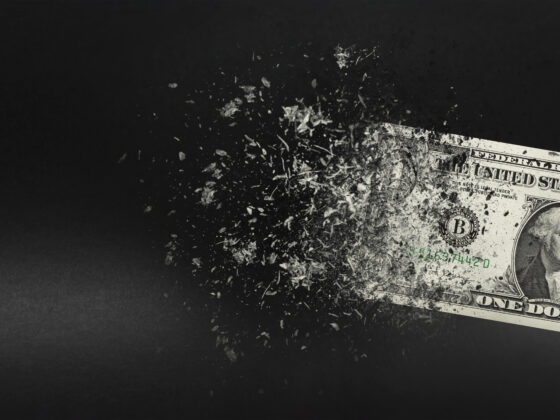As in neighboring Germany and Austria, cash is still king in Switzerland albeit a much diminished one. But the Swiss will soon have the chance to vote on whether to preserve notes and coins indefinitely.
This is a rare positive news story that, perhaps unsurprisingly, has received next to no attention beyond Swiss borders. As far as I can tell, none of the legacy media in the US, UK, France, Germany or Spain have even bothered to cover the story. Indeed, it only registered on my radar a couple of days ago, over a week after the story initially broke, because an acquaintance of mine with family in Switzerland told me about it.
So, here’s the basic thrust of the story: At the beginning of last week, a Swiss pressure group with libertarian leanings called the Swiss Freedom Movement (FBS) announced it had collected enough signatures (111,000) to trigger a national vote on preserving cash for posterity. If passed, the initiative would require the federal government to ensure that coins and banknotes are always available in sufficient quantities. What’s more, any attempt to replace the Swiss Franc with another currency — quite possibly a reference to a central bank digital currency — would also have to be put to popular vote.
From Reuters:
Swiss citizens will get the chance to try to ensure their economy never becomes cashless, a pressure group said, after collecting enough signatures on Monday to trigger a popular vote on the issue.
The Free Switzerland Movement (FBS) says cash is playing a shrinking role in many economies, as electronic payments become the default for transactions in increasingly digitised societies, making it easier for the state to monitor its citizens’ actions.
It wants a clause added to Switzerland’s currency law, which governs how the central bank and government manage the money supply, stipulating that a “sufficient quantity” of banknotes or coins must always remain in circulation…
Under Switzerland’s system of direct democracy, the proposal would become law if approved by voters, though government and parliament would decide how that law was implemented.
FBS says cash is playing a diminishing role in many economies, including Switzerland, as digital payment methods come to the fore, making it easier for the State and central bank to track citizens’ behavior.
“It is clear that… getting rid of cash not only touches on issues of transparency, simplicity or security… but also carries a huge danger of totalitarian surveillance,” FBS president Richard Koller said on the group’s website.
Cash Still King in Switzerland, Albeit a Much Diminished One
As in neighboring Germany and Austria, cash is still king in Switzerland, though its role has shrunk significantly in recent years. According to the findings of the Swiss National Bank’s last survey of people’s spending habits, conducted in the autumn of 2020, 97% of Swiss citizens still keep cash in their wallets or at home to cover day-to-day expenses, which is significantly higher than most countries.
Forty percent of transactions were still being made using cash, which is also higher than many of Switzerland’s more cashless European neighbors, such as the UK (around 15%), Sweden (less than 10%) and Norway (3-4%, the lowest level of cash usage in the world). But that was down from around 70% three years earlier. What’s more, in terms of transaction value, the debit card recently overtook cash as the payment method with the highest share for non-recurring payments.
“The survey results show that, in terms of the number of payments made, cash continues to be the payment instrument most frequently used by the Swiss population,” Fritz Zurbrugge, then-vice-president of the Swiss National Bank’s governing board, said. “Compared with 2017, however, when the first payment methods survey was carried out, its usage share has dropped significantly. The coronavirus pandemic has given additional impetus to this shift from cash to non-cash payment methods”.
As readers are well aware, the pandemic rapidly intensified preexisting forces, mainly due to unfounded fears that cash could exacerbate the spread of COVID. Those fears were stoked and magnified by mainstream media and seized upon by certain retailers (such as the British supermarket Tesco) to justify encouraging all customers to avoid making cash payments. Even today, with most public health measures (at least of the non-pharmaceutical variety) consigned to the back burner, retailers in some countries continue to reject cash.
Three Unique Benefits of Cash, According to SNB
The date for the referendum on the cash initiative is yet to be set. A video report on the issue by Swiss Info emphasized that none of Switzerland’s main political parties support the initiative. It also underscored the FSB’s libertarian credentials while likening the cash initiative to the failed sovereign money initiative of June 2018, also known as Vollgeld, which sought to put an end to fractional reserve banking by including the creation of scriptural money in the legal mandate of the Swiss National Bank (SNB).
Read the rest here:













